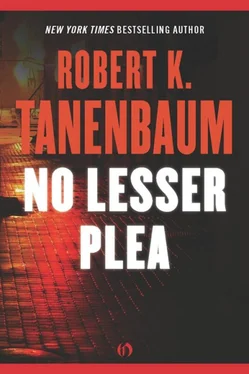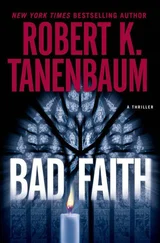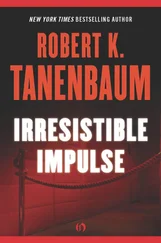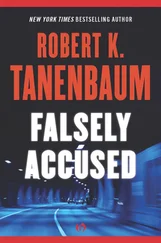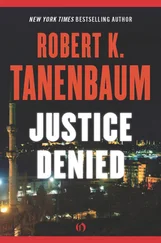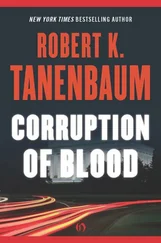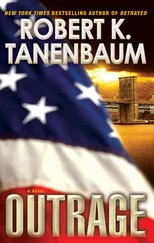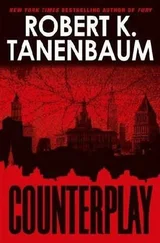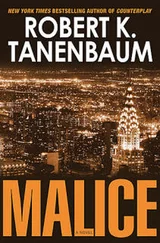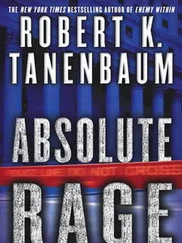Robert Tanenbaum - No Lesser Plea
Здесь есть возможность читать онлайн «Robert Tanenbaum - No Lesser Plea» весь текст электронной книги совершенно бесплатно (целиком полную версию без сокращений). В некоторых случаях можно слушать аудио, скачать через торрент в формате fb2 и присутствует краткое содержание. Год выпуска: 2011, ISBN: 2011, Издательство: Open Road Integrated Media, Жанр: Криминальный детектив, на английском языке. Описание произведения, (предисловие) а так же отзывы посетителей доступны на портале библиотеки ЛибКат.
- Название:No Lesser Plea
- Автор:
- Издательство:Open Road Integrated Media
- Жанр:
- Год:2011
- ISBN:978-1-4532-0994-3
- Рейтинг книги:4 / 5. Голосов: 1
-
Избранное:Добавить в избранное
- Отзывы:
-
Ваша оценка:
- 80
- 1
- 2
- 3
- 4
- 5
No Lesser Plea: краткое содержание, описание и аннотация
Предлагаем к чтению аннотацию, описание, краткое содержание или предисловие (зависит от того, что написал сам автор книги «No Lesser Plea»). Если вы не нашли необходимую информацию о книге — напишите в комментариях, мы постараемся отыскать её.
No Lesser Plea — читать онлайн бесплатно полную книгу (весь текст) целиком
Ниже представлен текст книги, разбитый по страницам. Система сохранения места последней прочитанной страницы, позволяет с удобством читать онлайн бесплатно книгу «No Lesser Plea», без необходимости каждый раз заново искать на чём Вы остановились. Поставьте закладку, и сможете в любой момент перейти на страницу, на которой закончили чтение.
Интервал:
Закладка:
“I already promised first to one of the private attorneys, but I’ll slide her in sometime after that.”
“Great. Thanks, Jim.”
“It’s OK. Hey, Yergin’s in his chambers. Why don’t you see him now. I want to get the show on the road.”
“Whenever.”
McFarley picked up the receiver on his ancient black phone and dialed one number. “Judge, Karp is here…. Fine, will do.” He hung up and pointed his thumb over his shoulder. Karp walked behind the clerk’s desk, went through a door, and entered Judge Yergin’s chambers.
It was a room just a little bigger than a walk-in closet, with a government green two-seat leather couch on one wall facing a small desk, behind which sat the judge.
Edward Yergin was black, one of New York’s first black Criminal Court judges and before that one of the first black assistant DAs. He had spent seventeen years prosecuting murder cases in the Homicide Bureau. He had convicted a hundred murderers and sent thirty of them to the death house. It showed on his face. He was a good judge and he liked Karp. The younger man had worked his courtroom for nearly a year and the two men had become sociable. They often had lunch together, sometimes with other ADAs or Legal Aid lawyers, sometimes alone. Away from the bench, Yergin never talked about court cases or the law, only about the old days in Homicide, city politics, or sports.
Yergin rose from behind his desk and shook Karp’s hand. The judge was a tall, strong man, strong-featured, with close-cropped gray-black hair. He had a black nylon robe over a snappy sky-blue suit. His face shone with a wide grin as he pumped Karp’s hand. “Congratulations, Butch.”
“Thanks, Judge,” said Karp, who had no idea what was going on. “What for? I usually show up for work on Friday.”
Yergin laughed. “What do you mean, ‘What for?’ I think it’s great. You’re going where you belong.”
“Sorry, Judge, you’ve lost me. Where do I belong? ”
Yergin laughed again and slapped Karp on the back. “Homicide, Butch. You’re being transferred to the Homicide Bureau. There’s probably a message from John Conlin on your desk right now. I wanted to be the first to congratulate you.”
Karp felt his face flush. “Judge, are you sure about this? I mean …”
“Of course I’m sure. I had it from Mr. Garrahy himself, last night. He called up and said it was evaluation time. He asked about you, said they’d been checking out some of the younger fellas for a new slot in the bureau. I told him you were a pretty fair trial lawyer. I also told him you probably wouldn’t let your old granny cop to a lesser on littering the sidewalk if you had a good witness. And that was that.”
Karp was still stunned. He found his voice and said, “Thanks, Judge, I just don’t know what to say. I mean, Homicide …”
Yergin noted the younger man’s discomposure, and said, “Butch, sit down there for a minute. I want to tell you something.”
Karp plopped down on the leather couch. Yergin leaned against his desk. “Butch, look here. I’ve been in this system, God help me, it must be close to thirty years. Believe me when I tell you we’re close to losing it. Plea bargaining! It’s not a convenience any more, it’s a necessity. And the crooks know it, believe you me. That’s the real value of the Homicide Bureau. It tries cases and it wins them and murderers get put away, for murder one, for a long time. Every time there’s a big murder trial and Homicide wins it, it’s got to send a little jolt through every crook in the city. I don’t mean the crazies. God, they’re like car crashes, you can’t do anything about them. But the cold-blooded little bastards with their pistols: they think they might actually have to do a long stretch, they might not shoot that old lady for four dollars and twenty cents.
“And there’s another thing. Trials reverberate throughout the whole system. I truly believe this. The crooks have to learn that they can’t just waltz out of here with an easy plea. They have to learn that when they turn down the prosecutor’s offer, they will go to trial and they will lose and they will go to prison. That’s the way the system’s supposed to work. About the only place it does work anymore is in the Homicide Bureau. But if the bureau starts to slip, if the number of trials gets too small in relation to the number of pleas, then criminals won’t have to think about facing trial. They’ll know it’s an empty bluff. That can’t ever happen, Butch. If it does, the whole justice system becomes a … a….” He gestured expansively with his hand and fell silent, as if unable to conjure up a word appropriate to such an enormity.
The silence hung for a moment in the little room. Karp cleared his throat nervously but couldn’t think of anything to say. Then the judge straightened up, and smiled. “Why am I telling you all this? You know it, or they wouldn’t have picked you. Besides that, it’s the best legal team in the world. You’re going to work your buns off and love it.”
Karp got up, shook the judge’s big, brown hand again, murmured some more words of thanks and left. He sat down in his chair, shrugged off McFarley’s inquiring glance, and began arranging his papers in calendar order.
His mind was still a blur, the waiting courtroom unreal. He wasn’t thinking about the stack of petty offenses before him. He was thinking about homicide: the New York Daily News front page type of homicide, mousy-looking ax murderers snapped as they walked handcuffed between burly cops, partially covered corpses of gangland honchos riddled with bullets-the Big Time. He was going to be part of that, he was going to be on the First Team. It is very hard for someone who has been a star to stop being one while still young. Karp believed in justice. He felt for the victim. But what he loved was what he had just been given; the chance to shine, the chance to bend every element of his mind and spirit to some great end, and for everybody to know it. He had lost that chance on a hardwood floor in Palo Alto fourteen years ago, and now the carousel had brought him around to the brass ring again. He shut his eyes and took deep, calming breaths.
The clerk snapped him out of it with his “All rise!” as the judge entered. “Hearyehearye hearyeallthosewhohavebusinessbeforethishonorablecourtdrawnearandyeshallbeheardthehonorableJudgeEdwardYerginpresiding,” boomed Jim McFarley. The fabled wheels of the law began to grind.
Chapter 4
On the morning after the killings, Donald Walker awakened in a reversal of the usual order of things-from a rather pleasant dream into a living nightmare. In the dream he had actually gone to a job interview instead of to a robbery. A nice man had shaken his hand and told him he was exactly the kind of fellow the firm had been looking for. He would have a big office and sit behind a desk and wear a sharp suit and talk on the telephone and have lunch at fancy restaurants. In the dream he was just telling his wife about the job and receiving her praises, when the cockroach walked across his face.
He sat up with a stifled scream, clawing at his face with both hands. Junkies often have the experience of cockroaches crawling over their skin and often-at a particular stage of withdrawal-it is difficult to determine which are real and which are not. Walker leaped off the bed. He had fallen, fully dressed, into a drunken stupor the night before. He yanked off one sneaker and held it high, then pulled the grayish sheets and tatty chenille coverlet off the bed and shook them. No target appeared. Then he felt the tiny legs crawling down the back of his neck. Cursing, he began swatting at his back with the sneaker but the maddening tickle continued. Now it started on his legs. He was crawling with them. He dropped the sneaker, tore off his pants, and fell to the floor on his back, swatting at his legs and writhing, soaked with foul sweat, until he resembled a dying roach himself.
Читать дальшеИнтервал:
Закладка:
Похожие книги на «No Lesser Plea»
Представляем Вашему вниманию похожие книги на «No Lesser Plea» списком для выбора. Мы отобрали схожую по названию и смыслу литературу в надежде предоставить читателям больше вариантов отыскать новые, интересные, ещё непрочитанные произведения.
Обсуждение, отзывы о книге «No Lesser Plea» и просто собственные мнения читателей. Оставьте ваши комментарии, напишите, что Вы думаете о произведении, его смысле или главных героях. Укажите что конкретно понравилось, а что нет, и почему Вы так считаете.
